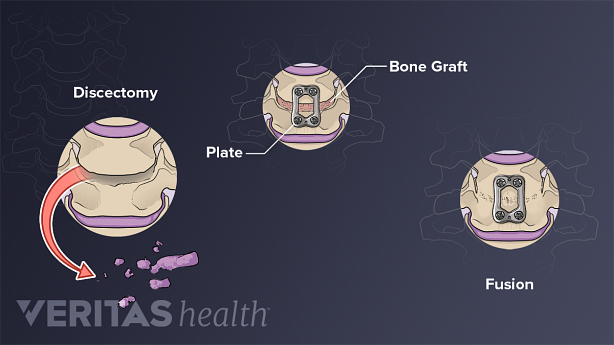A discectomy and decompression surgery are both commonly performed surgical procedures for treating spinal conditions, but there are some key differences between the two.
A discectomy is a surgical procedure performed to remove a herniated or damaged disc in the spine. This condition occurs when the gel-like material inside the disc leaks out, causing pressure on nearby nerves and resulting in pain and discomfort. During a discectomy, the surgeon makes a small incision in the back and removes the damaged portion of the disc. This relieves pressure on the nerves and can help alleviate symptoms such as pain, numbness, or weakness in the affected area. A discectomy is typically performed using minimally invasive techniques, which result in less scarring, pain, and recovery time compared to open surgery.
On the other hand, decompression surgery, also known as laminectomy, is performed to treat spinal stenosis. Spinal stenosis occurs when the spinal canal narrows, putting pressure on the spinal cord and nerves. This can cause pain, tingling, or numbness in the back, legs, or arms. During a decompression surgery, the surgeon removes a portion of the bone or ligament pressing on the nerves, thus relieving the pressure and creating more space in the spinal canal. This procedure aims to alleviate symptoms and improve mobility.
While both discectomy and decompression surgery aim to relieve pressure on the nerves, the primary difference lies in the underlying condition they address. Discectomy focuses on removing a herniated or damaged disc, whereas decompression surgery primarily targets spinal stenosis and involves the removal of bone or ligament. The choice of procedure depends on the specific condition and its severity, as determined by the surgeon after a thorough evaluation and examination of the patient.
In summary, while both discectomy and decompression surgery are surgical procedures aiming to alleviate pressure on the nerves, they differ in terms of the specific spinal condition they address. Discectomy deals with disc-related issues, while decompression surgery targets spinal stenosis, involving the removal of bone or ligament. The choice of procedure depends on the patient’s condition and is determined by the surgeon after evaluation.
How long does it take to recover from lumbar decompression surgery?
It will take about 4 to 6 weeks for you to reach your expected level of mobility and function (this will depend on the severity of your condition and symptoms before the operation). When you wake up after lumbar decompression surgery, your back may feel sore and you’ll probably be attached to 1 or more tubes.
Is lumbar discectomy major surgery?
Yes, a diskectomy can be a major surgery. But there are a few minimally invasive surgical approaches that are less major than an open diskectomy in terms of the days you spend in a hospital recovering.
Are discectomy and decompression the same?
The nerve is retracted, and the herniated disc is removed (discectomy) and replaced with bone graft. DecompressionDecompressionIn medicine, decompression refers to the removal or repositioning of any structure compressing any other structure. Common examples include decompressive craniectomy (removal of part of the skull to relieve pressure on the brain), and spinal decompression to relieve pressure on nerve roots.https://en.wikipedia.org › wiki › Decompression_(surgery)Decompression (surgery) – Wikipedia may also involve the removal of extra bone, tissue or tumor, to release the pressure off the spinal cord and nerves.

Is lumbar decompression surgery serious?
As with all types of surgery, there’s a risk of dying during or after lumbar decompression surgery, although this is rare. A blood clot, a bad reaction to the anaesthetic and blood loss can all be life-threatening.
How do I get my sciatic nerve to stop hurting fast?
– Cold packs. Place a cold pack on the painful area for up to 20 minutes several times a day. …
– Hot packs. After 2 to 3 days, apply heat to the areas that hurt. …
– Stretching. Stretching exercises for the low back might provide some relief. …
– Medications.

What causes sciatica flare?
Sciatica symptoms may worsen if the muscles in your lower back, hips, and legs become tight or if the cause of sciatica—such as a herniated disc, spinal stenosis, or bone spurs—remains untreated. You may experience a flare-up if you do not maintain good posture, sit too long, gain weight, or become pregnant.
Is walking good for sciatica?
By: Sheena Bhuva, MD, Physiatrist. Walking is surprisingly effective for relieving sciatica pain because regular walking spurs the release of pain-fighting endorphins and reduces inflammation.
How long does it take for sciatic nerve pain to go away?
Sciatica is where the sciatic nerve, which runs from your lower back to your feet, is irritated or compressed. It usually gets better in 4 to 6 weeks but can last longer.
.png?width=1200&name=Endoscopic-Lumbar-decompression (1).png)

